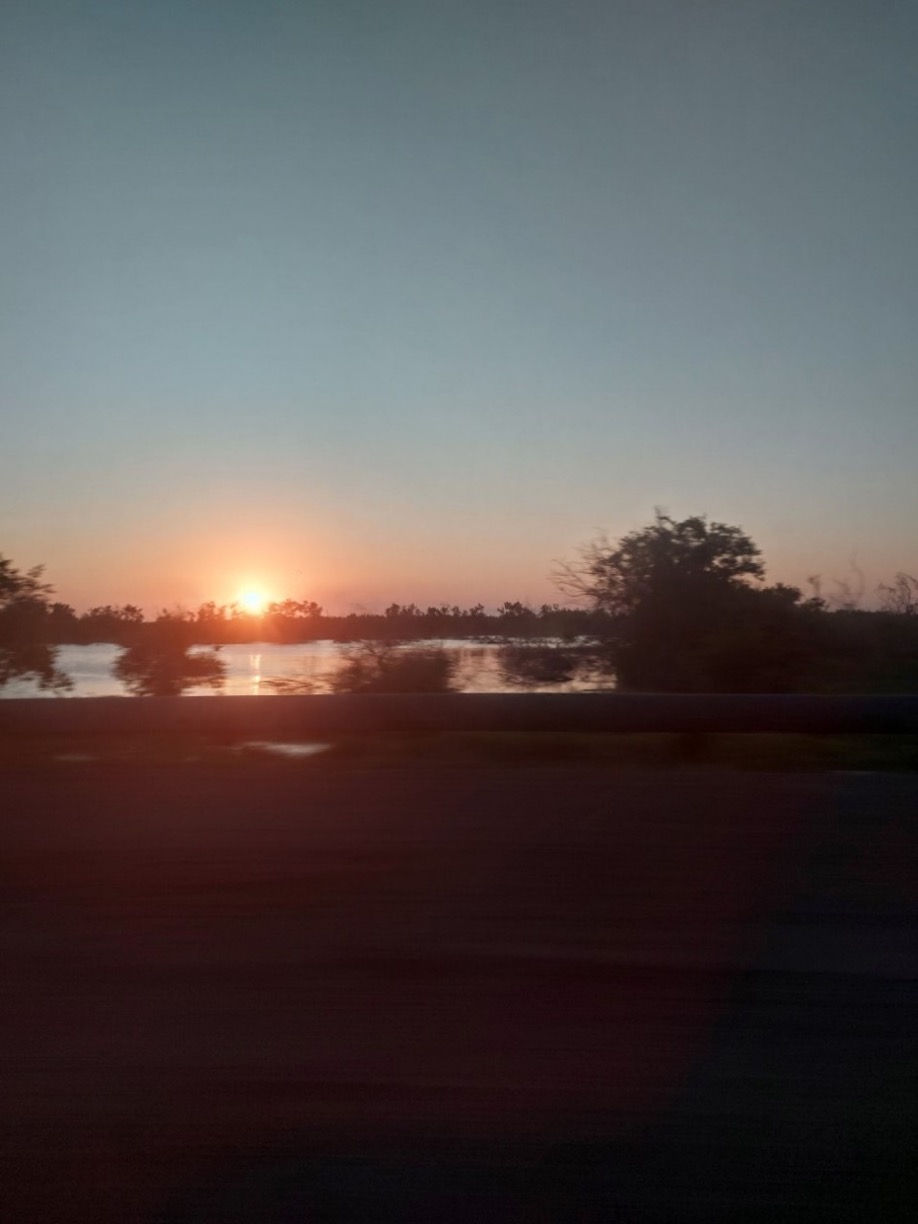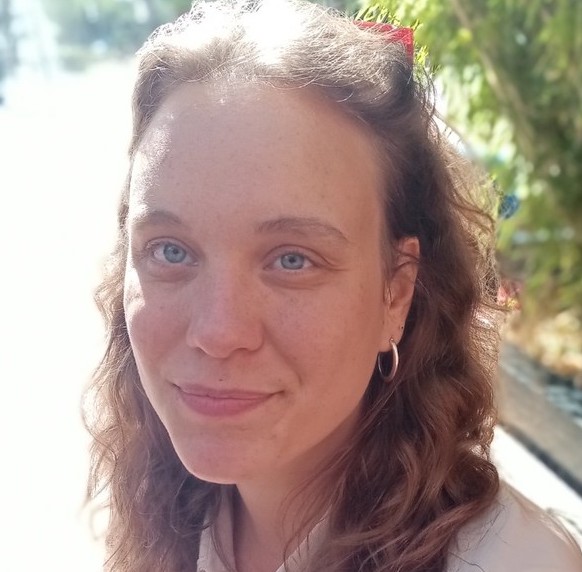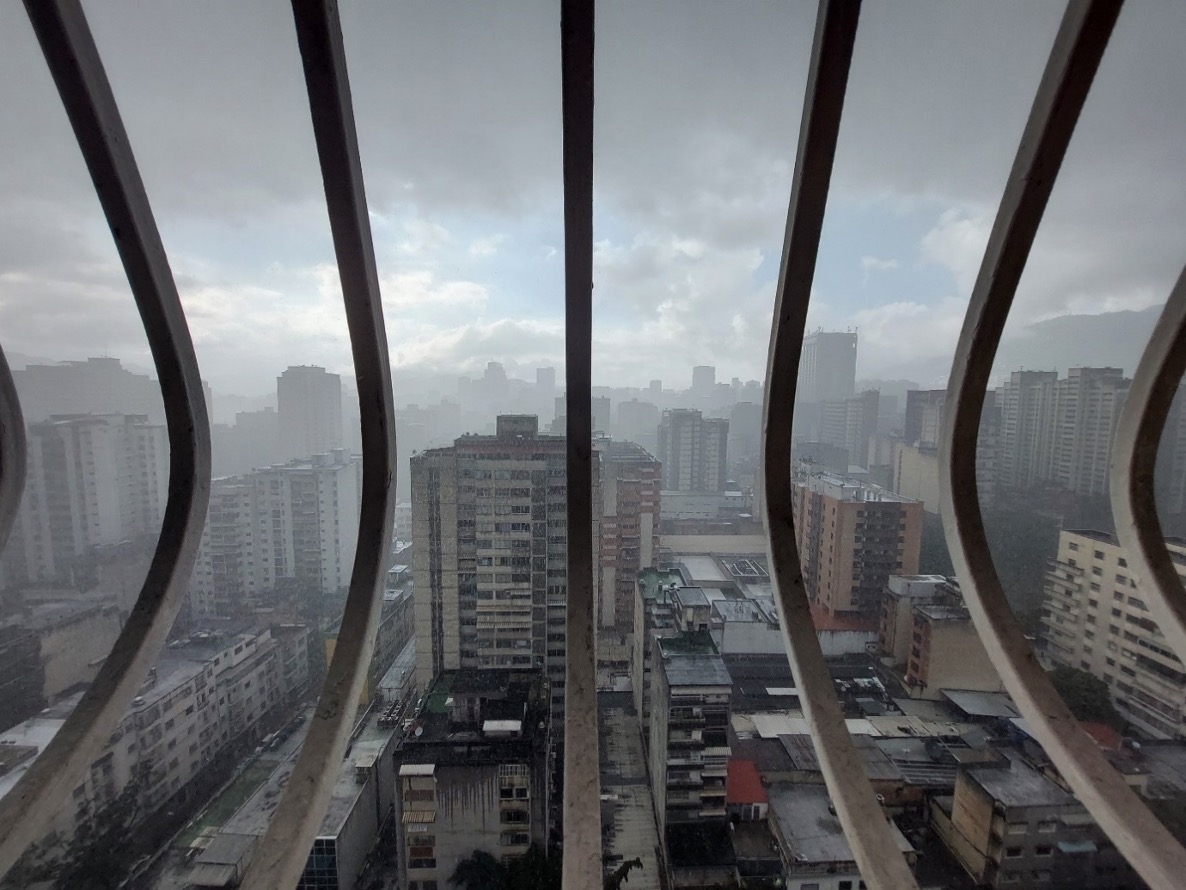I have known Yeli for a few months now. Since living in Medellín, I have my nails done by her every fortnight. She is strict with me. Annoyed, she looks at the wounds on my foot. She points at the cheap flip-flops I am wearing. With her long acrylic nails. Covered in glitter and tiny diamonds. I know she likes me. Whenever she sees me walking down the street, she calls after me: ‘Jasmine, do me a favour and walk like a model.’ She demonstrates how to do it. From the beauty salon comes the laughter of her colleagues.
She gets nostalgic when she talks about her homeland. About her childhood in Caracas. The people. The food. How she spent holidays on the coast. With beaches like those in Colombia, but twice as beautiful. One day, she decided to flee. She was one of the millions of Venezuelans who crossed the border on foot. Along with her niece. Then, a 10-year-old girl.
Encounters like this have often made me wonder what it is like to be Venezuelan in one of the surrounding countries. That you had to leave the country you loved so much because you feared for your life. That you made the choice to go to Colombia on foot. With children. An entire family. Or alone. And then; how unwanted you are. How you have to fight stereotypes every day. Against the collective hatred for Venezuelan refugees.
When I tell Yeli that I recently took the bus to her hometown, she declares me crazy. I agree with her. She starts laughing. Her colleagues laugh along with her.
The police dog ran straight at us. He bit into Jordi’s pocket. The officers ordered him to get out of the bus. I could see him from behind the window. He was standing against the wall with his hands and legs spread. They were arguing. He received a fist punch, rock hard in his stomach.
A man in uniform asked me for my passport. He wanted to know if I spoke Spanish. What I was doing here. Who had invited me. Because you need some kind of invitation letter to enter the country legally. A piece of paper I had bought for a few dollar cents from a man who helped me get a visa. The kind of business model that can only exist at the border. Border areas in Latin America are always capricious. You’d rather not be there. Nowhere else are opposites so close together. Nowhere else is the step from legality to illegality so sudden and so striking.
I couldn’t find it. I said a friend of Jordi’s had invited me. That I always forgot her name. ‘Your friend is going to jail.’ He asked if I understood what that meant. As he turned his back on me, a woman whispered to me to hide my money. I put twenty dollars in my sock when Jordi got back on the bus and he anxiously asked if I had any money still with me.
We had only just arrived in Venezuela. We would have to travel at least another twenty-four hours to Caracas. In an overcrowded and overheated bus. Where people were lying on the ground. We had to hand over all our dollars to the border police. Or my friend would be put away in a cell. Which in Venezuela meant that no one would ever hear from him again. That he would disappear.
During the rest of the trip, they stopped us a dozen more times. Each time we had to pay. Sometimes the whole bus. Other times the police haphazardly picked people out of the vehicle and, like Jordi, intimidated them into handing over everything.
In Caracas, I often thought back to that police dog. While drinking coffee on the balcony of the eighteenth floor. Whether the dog was trained to sniff out dollars instead of drugs. From behind the bars, I looked out over the city centre. Over a giant portrait of Hugo Chávez, painted on the Bank of Venezuela building. At night, two spotlights shone on his eyes. As if he was watching everything, day and night.
The feeling of suffocation never left me in Venezuela. Things I always took for granted (taking a bus, buying food, accessing water) suddenly became very complex. Nor could we travel to the beautiful beaches Yeli had told me about. Or to Jordi’s birthplace. About which he always spoke lyrical. It would be too expensive and too dangerous.
We ended up staying in the flat in Caracas for a fortnight. We drank rum by the shared pool during Christmas. Because it was too hard to find food. Because we lacked the energy to do anything else.
Venezuela is often compared to North Korea, but with rum and reggaeton. The country has taught me to be sceptical. The system does not allow one to dream or to feel freedom. Sometimes it seemed impossible to get away from it. A trap from which there is no escape. Something that occurred to me when I got yet another error message whilst trying to search for a plane ticket. Back to Colombia.
The lake coloured red for a moment in the sunset, then gradually turned to night. The car drove on through the deserted border area. At far too high a speed, the taxi driver dodged the potholes in the road. He would drive on. Even if someone threw themselves in front of his car. “This is a place without law,” he warned, “if I stop here, I cannot guarantee our lives”. Moments later, we crossed a village with houses made of wood. Where residents drank home-brewed alcohol. From recycled plastic bottles. Where they grouped with mopeds along the road. Listened to loud reggaeton. The tension in the car increased as the border approached. The driver had also stopped arguing about Maduro. Venezuela’s most hated man. Just a little more, and we would be back in Colombia.

Between Maracaibo (Venezuela) and Maicao (Colombia) 2022



